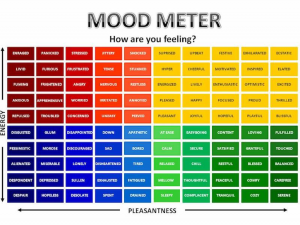As Social Workers, we are held to certain standards that help us practice to the best of our abilities. The first of the Social Work Core Competencies emphasizes the importance of being ethical and professional in a micro, mezzo and macro setting. We uphold the NASW Code of Ethics to help us make appropriate decisions, to maintain relationships, to help us better our practice. We have the ability to use technology, rely on supervision, and consultation to assist us, as long as we do so in a manner that is ethical and professional. We apply this competency when we send out an email to our agency that is professionally written, when we use supervision time to discuss issues we may have. By being aware and being ethical we can be prepared to provide our clients with the best care possible.
For competency 1 social workers are expected to demonstrate ethical and professional behavior. Using the NASW code of ethics, I journaled my experience with two ethical dilemmas during my time in the field placement. The ethical dilemmas included confidentiality, and disclosure.(1.1) During my course work, I completed a training through The Collaborative Institutional Training Initiative (CITI Program) on Research Involving Human Subjects, Plagiarism, Authorship, Collaborative Research, Conflicts of Interest, Data Management, Peer Review, and Research Misconduct (1.1).
The value presented throughout this competency is integrity to learning self care strategies in order to be fully engaged with clients. I practice strict boundary setting when it comes to the Sabbath and using my faith to practice rejuvenation.
During my field placement I attended weekly supervision with my social work supervisor to improve professional development. Read about some strengths, limitations, and challenges strengths, limitations, and challenges I discussed with my clinical supervisor (1.2).
In conjunction with my field placement I participated in a Permission to Feel book club with Dr. Brackett on emotional science (1.2) Dr. Brackett is the director for Emotional Intelligence at Yale University. Both my supervisor and I attended for ongoing professional development. The cognitive process I used in this evidence is the application of the mood meter as tool for my own emotional identification to respond to my need for personal management.
During my field placement I attended and participated in an art therapy training with maters level art therapist Hannah Ligon. She is the President of TN Art therapy Association (1.3). She had participants engage in water color and pastels in a CBT-art therapy intervention called the “emotion meter” directive. In this directive, clients are able to isolate a crisis in time and identify baseline state, triggers, emotions and feelings in the body leading up to a crisis, and process the crisis moment. Here are some of my art pieces from the training!
My demonstration of professional oral and written communication skills is reflected in my elevator speech presented to the Tennessee Senate Standing Committee for Education as part of my course work (1.4).
Our group was advocating for sexual health education to be taught in the school system.





